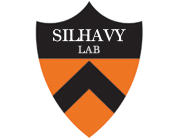Escherichia coli xonA (sbcB) mutants enhance illegitimate recombination
Type
Mutations of Escherichia coli K-12 were isolated that increase the frequency of deletion formation. Three of these mutations map to the gene sbcB at 43.5 min on the E. coli chromosome. Two types of mutations at sbcB have been previously defined: sbcB-type that suppress both the UV sensitivity and recombination deficiency of recBC mutants, and xonA-type that suppress only the UV sensitivity. Both types are defective for production of exonuclease I activity. The mutations isolated here were similar to xonA alleles of sbcB because they suppressed the UV sensitivity of recBC mutants but did not restore recombination proficiency. Indeed, two previously characterized xonA alleles were shown to increase the frequency of deletion formation, although an sbcB allele did not. This result demonstrates that loss of exonuclease I activity is not sufficient to confer a high deletion phenotype, rather, the product of the sbcB gene possesses some other function that is important for deletion formation. Because deletion formation in this system is recA independent and does not require extensive DNA homology, these mutations affect a pathway of illegitimate recombination.

